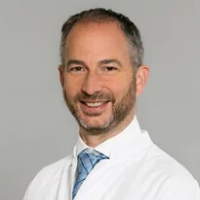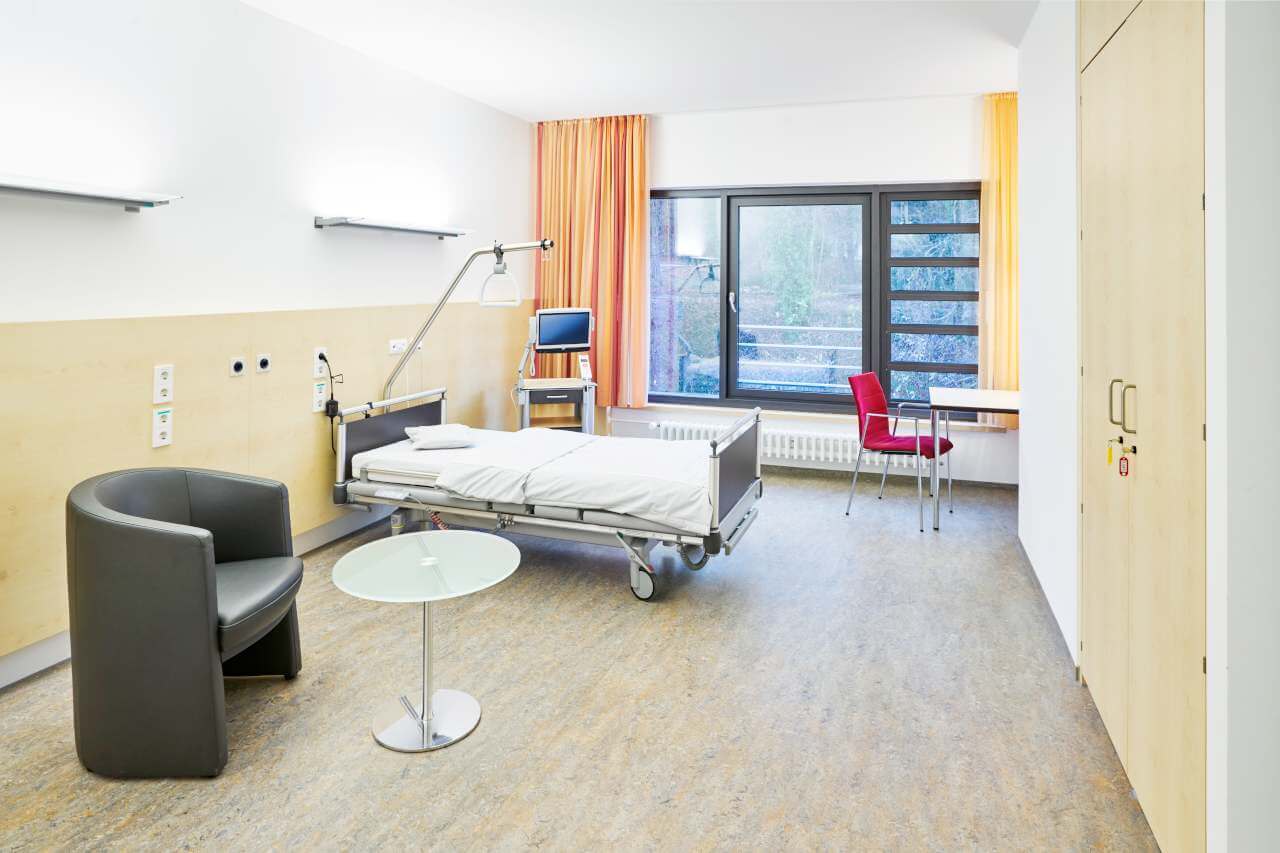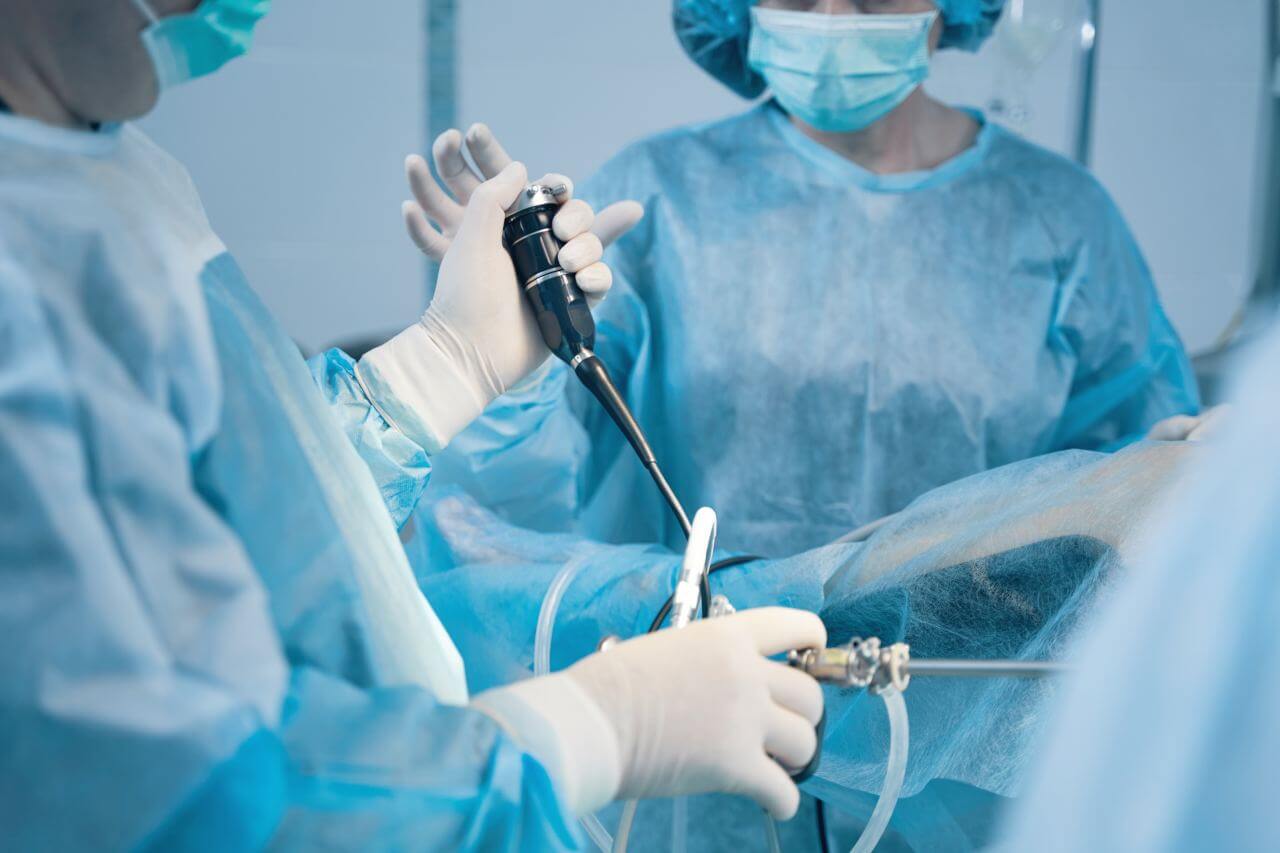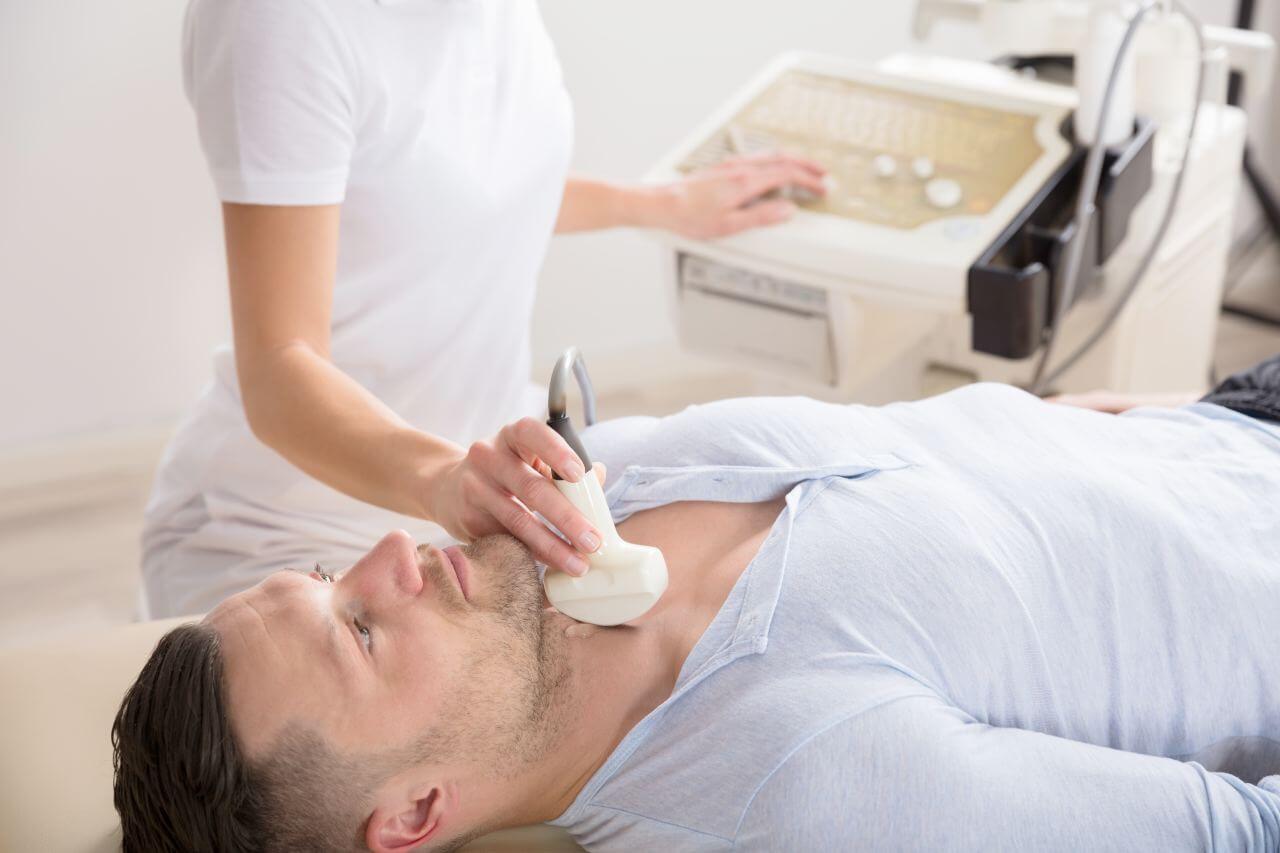
About the Department of Endocrine Surgery at Schoen Clinic Hamburg Eilbek
The Department of Endocrine Surgery at the Schoen Clinic Hamburg Eilbek offers the full range of medical services in the field of its competence. The medical facility brilliantly performs surgery of any complexity for thyroid, parathyroid, and adrenal diseases. The department is the largest Endocrine Surgery Center in Germany and also enjoys the status of one of the largest and best health facilities of this kind in Europe. In addition, the department can boast of its exceptional success in thyroid cancer surgery and is highly reputable in this field in Germany and other EU countries. More than 2,300 surgical procedures are performed in the department's operating rooms every year. The specialists have a perfect command of minimally invasive surgical techniques and also pay attention to the aesthetic aspect. To ensure the safety of surgical manipulations on the thyroid gland, the medical facility uses advanced intraoperative neuromonitoring systems. The team of endocrine surgeons cooperates closely with endocrinologists and nuclear medicine specialists. This approach allows for a comprehensive assessment of the endocrine pathology and the development of an optimal treatment regimen.
The Head Physician of the department is Prof. Dr. med. Volker Fendrich. The surgeon has more than 20 years of successful clinical experience. He completed an internship at the University Hospital Zurich, worked for a long time at the University Hospital Marburg, and also worked for two years as a Research Fellow at the Johns Hopkins Hospital in Baltimore, USA. Prof. Fendrich is actively engaged in research activities, gives lectures to medical students, and regularly publishes numerous scientific works.
The department has vast experience in thyroid cancer surgery and has gained an excellent reputation in this field in Germany and far beyond. This oncologic disease is associated with the malignant transformation of follicular or parafollicular cells. Thyroid cancer is relatively rare and is more often diagnosed in women. Patients suspected of having this type of cancer undergo comprehensive diagnostics, including palpation, ultrasound scanning, and fine needle aspiration cytology (FNAC). Should the diagnosis be confirmed, the first-line treatment is surgical resection of the part of the thyroid gland or the entire organ. The extent of surgery depends on the type of cancer, the size of the tumor, and the spread of the oncological process. When thyroid cancer spreads to the lymph nodes, a lymph node dissection (surgical removal of neck lymph nodes) may be additionally performed. When performing operations, the department's endocrine surgeons use intraoperative neuromonitoring devices because the recurrent laryngeal nerve is located in close proximity to the thyroid gland. This nerve may be damaged during surgery, and this may result in severe voice disorders. As a rule, patients leave the hospital on the second day after surgery. Additionally, radioiodine therapy may be performed if necessary (3-4 weeks after surgery).
The department also often performs surgery for patients with goiter. This pathological condition is characterized by an enlargement of the thyroid gland due to iodine deficiency, autoimmune processes, or other conditions. The disease occurs in women four times more often than in men. Surgery is the last-line treatment. The main indications for goiter surgery are compression of the trachea and other organs in the neck, as well as the presence of hormonally active nodules in the thyroid gland. When performing surgical procedures for goiter, the department's specialists use minimally traumatic surgical techniques, and intraoperative neuromonitoring is also mandatory.
The department's team of endocrine surgeons is also competent in surgery for parathyroid diseases. It is worth noting that the medical facility is the largest and one of the most competent European centers specializing in parathyroid surgery. The most common indication for surgery on the parathyroid glands is primary hyperparathyroidism, which causes increased production of parathyroid hormone by a parathyroid adenoma.
An integral part of the work of the department's team of endocrine surgeons is the treatment of benign and malignant adrenal tumors, with benign neoplasms occurring in the majority of cases. Adrenal tumors are classified into hormonally inactive and active neoplasms. In the first case, there is rarely a need for surgical treatment, while in the second case, surgery is always indicated. Surgeons perform operations for adrenal tumors using minimally traumatic laparoscopic techniques. As a rule, the tumor is removed along with the affected adrenal gland. After laparoscopic surgery, the patient experiences virtually no pain and has barely noticeable scars. To remove large adrenal tumors (larger than 8 cm), the department's specialists resort to open surgical interventions. During such operations, adjacent lymph nodes may also be resected if necessary.
The department offers the following surgical services:
- Surgical treatment for thyroid diseases
- Surgery for thyroid cancer
- Surgery for goiter
- Surgery for thyroid nodules
- Surgery for hyperthyroidism
- Surgical treatment for parathyroid diseases
- Surgery for hyperparathyroidism
- Surgical treatment for adrenal diseases
- Surgery for benign and malignant adrenal tumors
- Surgery for Cushing's syndrome
- Surgery for Conn's syndrome
- Other surgical options
Curriculum vitae
Higher Education and Postgraduate Training
- 1994 - 2001 Medical studies, Albert Ludwig University of Freiburg.
- February 2000 - September 2000 Internship, Department of General Surgery and Internal Medicine, Hospital Lahr.
- October 2000 - February 2001 Internship, Department of Anesthesiology, University Hospital Zurich.
- March 2002 Thesis defense, Faculty of Medicine, Albert Ludwig University of Freiburg.
- Since 2002 Research activities within the Pancreatic Cancer Working Group, Philipps University of Marburg.
- 2004 - 2006 Research Fellow, Johns Hopkins Hospital in Baltimore, Maryland, USA.
- 14.09.2009 Habilitation in Surgery, Faculty of Medicine, Philipps University of Marburg.
- 18.12.2009 Venia Legendi in Surgery, Faculty of Medicine, Philipps University of Marburg.
- Since 2006 Head of the Research Working Group "Transgenic pancreatic carcinomas in a mouse animal model".
- Since 2007 Head of the Research Working Group "Epithelial-mesenchymal transition (EMT) of malignant tumors".
- 16.02.2012 Extraordinary Professorship, Philipps University of Marburg.
Professional Career
- 01.07.2001 - 31.12.2002 Internship, Department of Abdominal, Thoracic and Vascular Surgery, University Hospital Marburg.
- 01.01.2003 Admission to medical practice.
- Since 2001 Research Fellow, Department of Abdominal, Thoracic and Vascular Surgery, University Hospital Marburg.
- 01.2008 - 01.2009 Work in the Department of Trauma Surgery, Hand and Reconstructive Surgery.
- 01.04.2009 Board certification in Surgery.
- 31.08.2009 Senior Physician, Department of Abdominal, Thoracic and Vascular Surgery, University Hospital Marburg.
- 08.12.2010 Theoretical basics of the specialty in Radiation Protection: X-ray diagnostics of bones, chest, and abdomines.
- 2011 Board certification in Abdominal Surgery.
- Since 09.2012 Deputy Head Physician, Department of Abdominal, Thoracic and Vascular Surgery, University Hospital Marburg.
- 08.07.2014 Master of Business Administration (MBA) in Healthcare Management, Dresden University of Technology.
- Since 02.2017 Head Physician, Department of Endocrine Surgery, Schoen Clinic Hamburg Eilbek.
Photo of the doctor: (c) Schön Klinik Hamburg Eilbek





